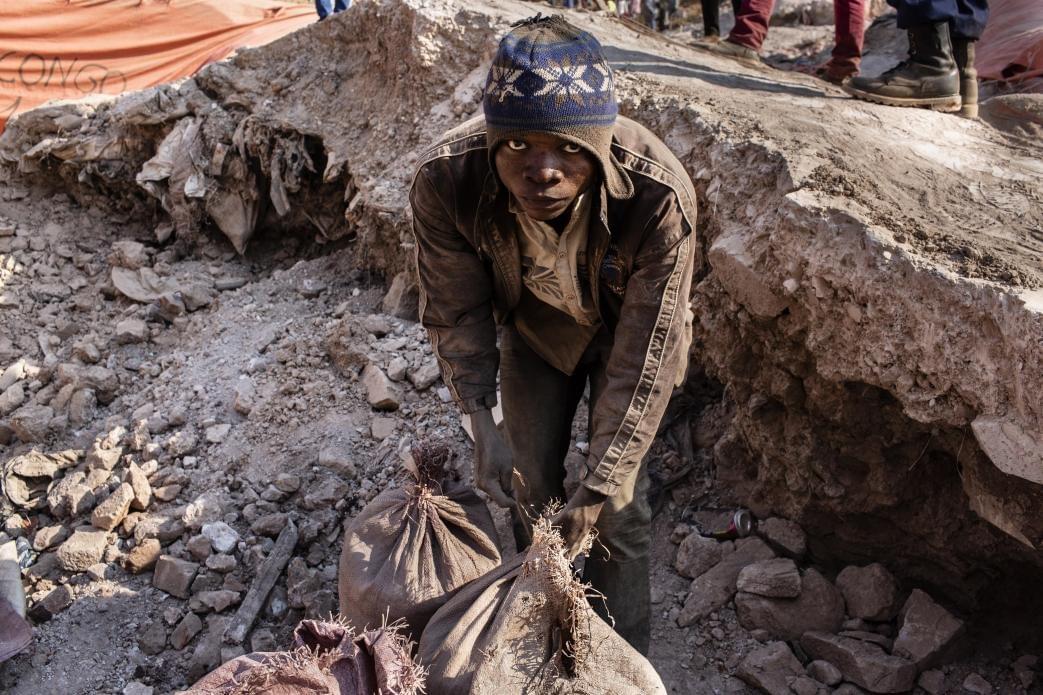
The Democratic Republic of Congo (DRC) is a nation of immense potential, yet it remains one of the most troubled countries on the African continent. When I met an Uber driver from the DRC yesterday, our conversation stirred profound thoughts about the country’s situation.
As a human rights activist and someone passionate about African issues, I find the silence surrounding the DRC deeply troubling. The country’s struggles reveal the stark contrast between its natural wealth and the harsh realities faced by its people.
The DRC is one of the richest countries in the world in terms of mineral resources. It holds vast deposits of cobalt, copper, diamonds, gold, tin, tantalum, and coltan. Cobalt and coltan, in particular, are essential components for the batteries and electronics that power our modern lives, from smartphones to electric vehicles.
These minerals could transform the DRC’s economy, creating wealth, jobs, and opportunities for its people. However, this wealth has instead become a curse. Corruption, exploitation, and foreign interference have ensured that the profits flow to a small elite and multinational corporations, while ordinary Congolese people endure poverty and violence.
The mining industry in the DRC is fraught with human rights abuses. Many mines rely on child labor, with children working in hazardous conditions for meager pay. Artisanal miners, often forced into these jobs by a lack of alternatives, face daily risks of injury or death in unsafe mines. Entire communities near mining operations are displaced, and their lands are destroyed by environmental degradation. What we see in the DRC is nothing short of modern-day slavery.
The exploitation of the country’s resources, combined with the suffering of its people, is a moral stain on humanity.
What troubles me most is the world’s silence. Why is the international community so quiet about the atrocities in the DRC? Why is there no outcry against the systemic exploitation of its people? Western countries, which benefit from the DRC’s resources, must shoulder much of the blame. Their multinational corporations profit immensely while turning a blind eye to the suffering on the ground.
The global demand for technology and green energy drives this exploitation, but the ethical costs are ignored. It is infuriating to see how little accountability exists. (Video attached- AL Jazeera material)
As Africans, we must also confront hard truths. Why are we allowing this to happen on our continent? Why are African leaders so silent about the DRC? This is not just a Congolese issue; it is an African issue. The ongoing exploitation of the DRC is a continuation of the colonial legacy, where African resources are plundered to benefit others. Our leaders must unite to demand an end to this injustice. African nations have the power to stand together, to hold foreign corporations accountable, and to ensure that Africa’s wealth benefits Africans first.
South Africa, as a regional power, has a critical role to play. Our country has a history of standing up against oppression, and now is the time to extend that solidarity to the DRC. We can use our diplomatic influence to push for better governance, transparency, and the protection of human rights in the DRC. We can also support Congolese civil society organizations that are fighting for change on the ground. However, South Africa’s response so far has been muted, and this must change.
There are some African leaders who have spoken out about the situation in the DRC. For instance, Rwanda’s Paul Kagame has often been at the center of discussions about the DRC, though his country’s role in the region has been controversial.
Other leaders, like Kenya’s William Ruto, have called for peace and stability in the Great Lakes region. Yet, words alone are not enough. We need action—decisive, united action—to address the root causes of the conflict and ensure that the DRC’s wealth benefits its people.
As I reflect on the DRC’s plight, I am filled with both anger and determination. It is unacceptable that in the 21st century, slavery persists in this modern form. It is unacceptable that the people of the DRC, whose land is so rich, live in such dire conditions.
It is unacceptable that the world remains silent while a nation is bled dry. We, as Africans, must rise. We must demand accountability from our leaders, from Western corporations, and from the global community. We must ensure that the DRC’s wealth is used to uplift its people, not to enrich outsiders.
The time for silence is over. The time for action is now. The DRC’s story is one of immense potential and heartbreaking struggle. But with the right leadership, solidarity, and commitment to justice, it can become a story of triumph.
We owe it to the people of the DRC, and to ourselves as Africans, to make that vision a reality.

